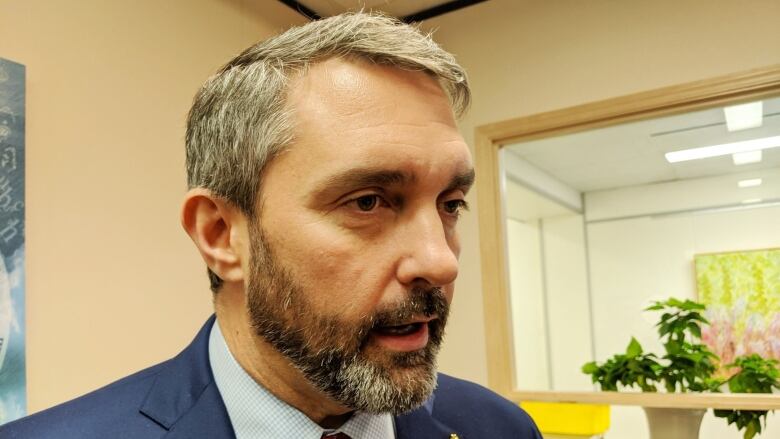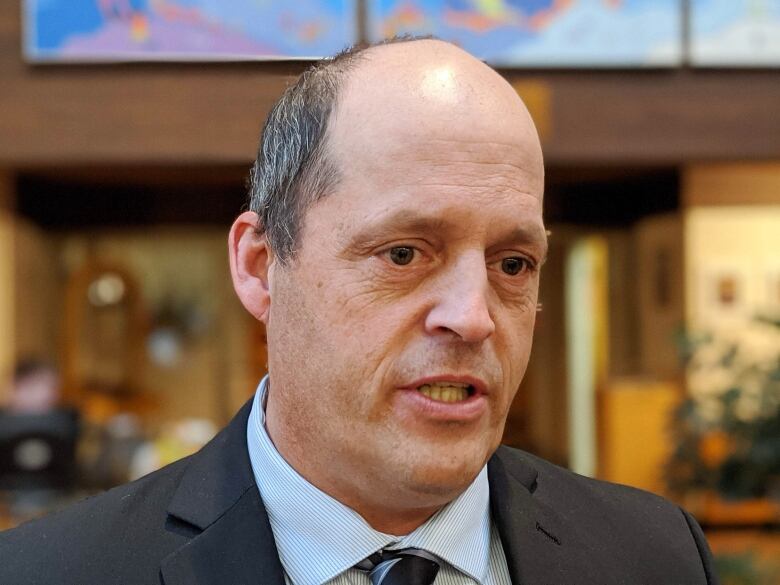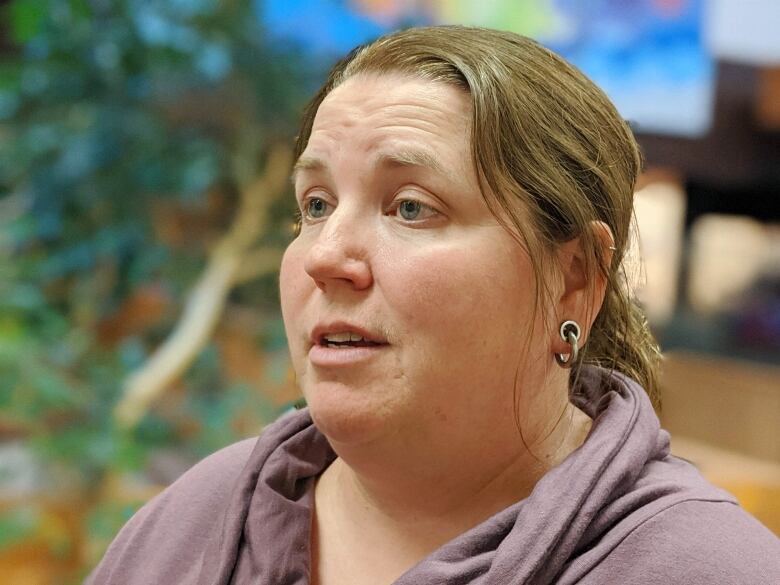4 issues that dominated the Yukon legislature's fall sitting
Despite moments of co-operation, discord dominated the last two months in Yukon politics

Yukon's legislative assembly wrapped up its fall sitting this week after two months of fractious squabbling, punctuated by a few moments of unity.
MLAs passed changes to the territory's corrections and elections acts, a totally-revamped liquor act, tough new rules on smoking and vaping, and a bill that formally establishes Yukon University.
So they got some stuff done. But all that happened amid a haze of partisan squabbling, procedural bickering and inscrutable political maneuvering.
Here are four themes from the fall sitting.
Climate change strategy
All three parties supported the government's proposed climate change strategy, an ambitious 140-item roadmap that would overhaul the Yukon's economy by funding home retrofits, building more renewable power generation and kickstarting the electrification of the territory's transportation network.
This opens the door to a bunch of fascinating policy discussions. How do you start to decarbonize a remote, northern economy that, for all sorts of practical reasons, is still reliant on fossil fuels?
But with the federal government's carbon price set to escalate to $50 per tonne by 2022, and experts suggesting it will have to rise to even farther, fossil fuels will become less appealing, especially as a way to generate electricity.
Yukon Energy is already trying to increase the amount of power it gets from the existing hydro network. It will need it, especially with the government aiming to increase the amount of electric vehicles on the road through new subsidies and a new network of charging stations.
The government is taking public feedback on the plan until January, and is establishing a youth panel on climate change. There will be plenty more for Yukoners to discuss about this in the new year.
Electoral reform
If Yukon's political parties can work together on climate change, they can't even come close to agreement on electoral reform.
The process has ground to a halt, and Premier Sandy Silver's wish to have a suite of proposed changes for voters to mull over in time for the next election appears to be wishful thinking.
The latest twist is the premier's failed attempt last week to introduce a motion calling for an all-party select committee to study the matter, as the opposition parties have been seeking for months. But the motion contained almost no details about how the committee would work and was ruled out of order by the assembly's clerk.
That came mere weeks after Silver told reporters he flat-out rejected a select committee. He now says such a committee was always part of the plan, and would have followed the government-appointed electoral reform commission's work.
On the last day of the sitting, NDP MLA Liz Hanson introduced a more fleshed-out motion, but now the premier is rejecting a special sitting day to debate it before spring, which would allow the committee to get started.
There are all kinds of partisan interests at play here: the NDP really wants proportional representation, the Yukon Party does not particularlywant any changes to the voting system, and complained loudly about past partisan involvement of the government's ill-fated electoral reform commission, which is now without a chair and is on indefinite hiatus.
The Liberals, meanwhile, appear to be attempting to deliberately steer the whole process into the rocks while simultaneously acting as though it's all the opposition's fault.
Speaker neutrality
Electoral reform also sparked a dispute between the Yukon Party and speaker Nils Clarke. In short, Clarke ruled a letter from former assembly clerk Floyd McCormick criticizing the government's electoral reform commission on technical grounds would not be discussed at the secret Members Services Board.
The opposition parties didn't like that and Hanson tabled the letter in the assembly, in violation of the MSB's confidential status. Interim Yukon Party leader Stacey Hassard questioned Clarke's impartiality during debate, leading Clarke to scold both Hassard and Hanson in the assembly.

Clarke, who was elected as a Liberal MLA and appears at some partisan events, insists he can do his job fairly. He says it's unfair to expect the Yukon speaker to adopt the total non-partisan nature of, say, the British speaker, who gets to seek re-election effectively unopposed.
The Yukon Party responded by introducing a motion calling for a speaker's code of conduct, which would, in part, bar the speaker from partisan activity. The code is now on the agenda of the assembly's standing committee on rules, elections and privileges, where it will be debated in secret, as are all matters before the house's standing committees.
'Go ahead, bud'
Politicians love their talking points and the Liberals are no exception. And during the cut and thrust of Question Period, where ministers are expected to think on their feet, the lure of of falling back on talking points often proves hard to resist.
The cabinet ministers all do this to varying degrees, and Silver's no different (if you're ever offered a bet on the number of times he says "whole of government," take the over). Indeed, the Liberals drove the opposition nuts by largely steering clear of anything resembling a substantive answer during QP.
So when the assembly mics picked up Silver's very-east-coast response "go ahead, bud"to a point of order by Yukon Party MLA Brad Cathers, it was a rare unscripted moment for the premier. Cathers and Silver sparred frequently during the session, with an escalating degreeof ugliness. It culminated on the second last day of the sitting with Cathers telling Silver to "go back to Antigonish."

All this chest-thumping illustrates what NDP leader Kate White considers a larger problem: She says the Liberals are running the least transparent government in her eight years in the assembly, causing frustration in the opposition benches. The Yukon Party is tired of being blamed for every problem they may have been in power for 14 years, but they've been out of power for three.
As for the Liberals, their response to those complaints might be the same as Silver's when asked about the Antigonish remark: "I'm fine."












_(720p).jpg)


 OFFICIAL HD MUSIC VIDEO.jpg)
.jpg)



























































































